VLGA calls on sector to do more to bridge the gender gap
The push to increase the number of women councillors elected at the 2024 Victorian local government elections has failed to achieve gender equality.
The Victorian Local Governance Association (VLGA) is now calling on the sector to work in partnership with them to bridge the gender gap.
VLGA CEO, Kathryn Arndt, said while the good news was the sector now has more female councillors in total, it also has more males, which means the percentage of women councillors across Victoria has remain unchanged at 43%.
“Our vision, and it’s one shared by the Victorian Government, was to see 50% of women elected as councillors and mayors by 2025. Sadly, that target has not been achieved,” she said.
“We know that diversity in the council chamber inevitably leads to strengthened and more informed decision making and good governance.”
“The VLGA wants local councils to look like the people they represent. This is particularly relevant for a tier of government that is positioned closest to community.”
278 women were successfully elected to councils across Victoria this year – a rise of 15 since before the election.
This compared to 366 men– which increased from 345.
Ms Arndt said the VLGA had a long and proud history of being a leader in the gender equality space, promoting the benefits of balanced gender representation and delivering high quality programs and resources which improve gender equality outcomes for the sector.
“We know our work is having a positive impact. Our election analysis shows VLGA member councils had better outcomes when it came to gender representation than non-member councils,” she said.
“The average number of women councillors at member councils is currently sitting at 46%, compared to 38% at non-member councils.”
Ms Arndt said the election results demonstrated that more needed to be done and she was calling on key stakeholders across the sector to partner with the VLGA to achieve gender equality.
She said the VLGA had written to the Victorian Government seeking funding support for the peak body’s ongoing work in this space.
“This year was the first year in more than a decade that we didn’t receive Victorian Government funding towards our work in the gender equality space and while we were able to continue our pioneering work through the support of our membership, the reality is we can’t do it alone.”
“The sector needs to work together to achieve gender equality and funding needs to be directed towards the experts that can illicit positive change in this space.”
In 2023/24, the VLGA not only expanded its gender-based training modules for councils and continued its Local Women Leading Change Program (LWLC), but it also conducted the first-ever Victorian Councillor Census to help identifying the challenges and barriers preventing women and men from standing as councillors.
The results of this ground-breaking work will be released in early 2025.
Ms Arndt said with more funding directed towards the right people and organisations, she was confident the sector could achieve gender balance.
“The VLGA remains committed to achieving gender equality amongst councillors,” she said.
“The time to act is now, as our focus shifts to the 2028 council elections and achieving equal representation for women and men in the sector.”
For Media Enquiries
Anya Murray, Head of Stakeholder Engagement, 0408 991 468.
.
The VLGA acknowledges the Traditional Owners of Country throughout Victoria and recognises their continuing connection to land, waters and community. We pay our respects to the Traditional Owners, their elders past, present and future, and to their cultures.
Disclaimer:
The advice provided by the VLGA is intended to be guidance only. It is not a substitute for legal or formal advice from relevant regulatory bodies.
© Victorian Local Governance Association 2023




